- 15 Oct 2025|
- News
Key Findings
- Composite doors win on thermal efficiency – testing shows they’re up to 19% more thermally efficient than standard timber alternatives, helping reduce energy bills
- Security goes to composite doors – the combination of materials and advanced multipoint locking systems provide superior protection against break-ins
- Maintenance is a draw – both door types offer low maintenance solutions, though composite doors have a slight edge for weather resistance
- uPVC doors are the cheaper option – lower upfront costs make them accessible for budget-conscious homeowners
- Aesthetics favour composite doors marginally – while both offer woodgrain effects, composite doors provide more convincing timber appearances
Choosing between a composite door vs uPVC doesn’t need to be overwhelming. As a local Doncaster company that’s been helping homeowners make these decisions since 2013, we understand the confusion surrounding door types. The truth is, there’s no universally “right” answer – it depends entirely on your priorities, budget and property requirements.
At Doncaster Trade Windows, we supply and install both composite doors from leading manufacturers like DoorCo and Distinction Doors, plus our own manufactured uPVC doors. We’re not here to push you towards the most expensive option; we’re here to give you honest advice so you can make the best choice for your home.
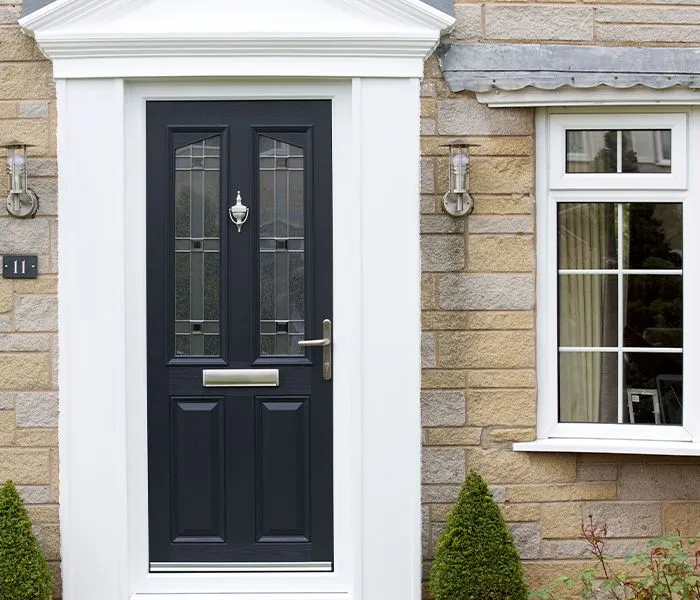
Understanding uPVC doors
uPVC stands for unplasticised polyvinyl chloride, essentially a durable plastic material that’s been used for doors since the 1980s. These doors feature hollow chambers within the frame that provide insulation, combined with double glazing for energy efficiency.
Our uPVC doors are manufactured in-house at our Doncaster facility using premium Eurocell profiles. They come in various styles including entrance doors, French doors and sliding patio doors, with colour options including white, black, rosewood, Irish oak, golden oak and cream.
The manufacturing process involves creating multi-chambered profiles that trap air for insulation, then fitting quality glazing and weather seals to create an energy-efficient entrance.
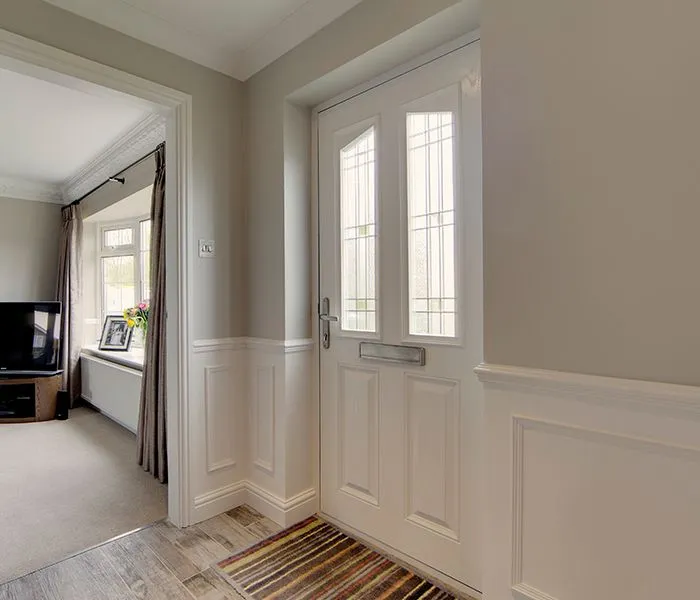
Understanding composite doors
Composite doors are a blend of materials designed to combine the best properties of different door types. The typical construction includes a solid timber core or high-density foam core, surrounded by Glass Reinforced Plastic (GRP) outer skin with an authentic woodgrain finish.
Our composite door range from DoorCo and Distinction Doors features engineered wood for stability, foam-filled cores for thermal efficiency, and water-resistant composites to prevent warping. The GRP outer coating provides excellent weather resistance whilst maintaining an attractive timber appearance.
This combination of materials creates doors that offer superior insulation, security and aesthetic appeal compared to traditional timber doors or basic uPVC options.
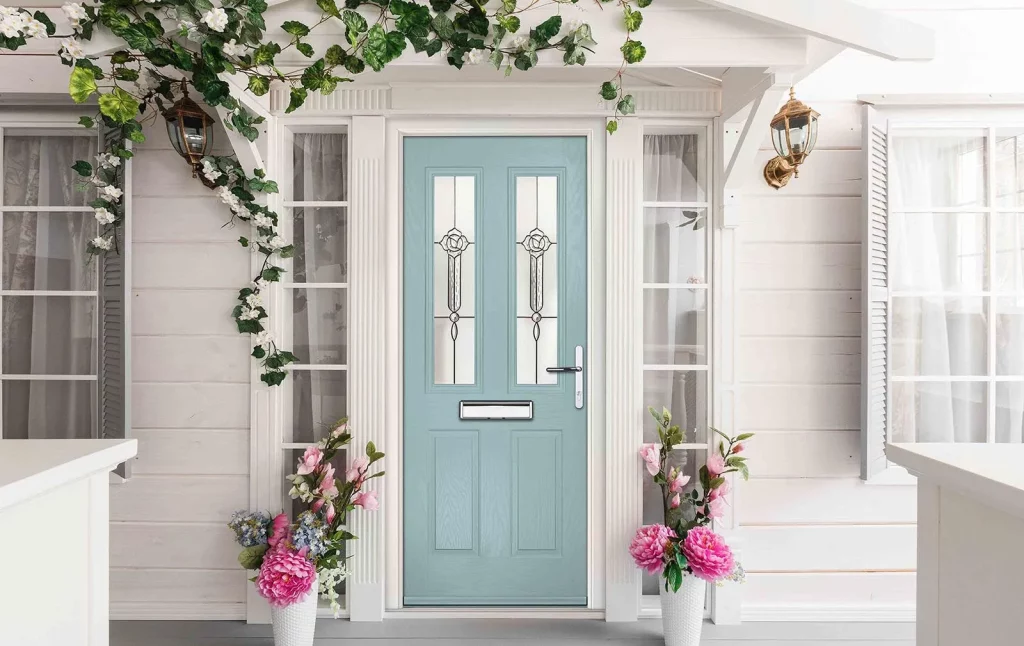
Which door type suits your needs?
Let’s examine the key factors that matter most to UK homeowners when choosing a new front door.
Thermal efficiency
Understanding energy efficiency is crucial given rising energy bills. Thermal efficiency simply means how well your door prevents heat loss from inside your home during winter months.
Composite door thermal performance
Tests prove that quality composite doors like our Distinction range are 19% more thermally efficient than 48mm solid timber core alternatives and 17% more efficient than traditional timber panelled doors. The foam-filled core creates excellent insulation, whilst the engineered construction prevents draughts.
The reinforced core and water-resistant composites work together to maintain the door’s shape and seal, preventing heat loss through gaps that can develop in other door types over time.
uPVC door thermal performance
Our uPVC doors feature advanced insulating profile design with multi-chambered construction that traps air for insulation. Combined with quality double glazing and superior weather sealing, they deliver excellent thermal performance for the price point.
The sealed chamber system prevents cold bridging, whilst modern weather seals eliminate draughts around the door frame.
Verdict: Composite doors edge ahead due to their superior core insulation and construction stability.
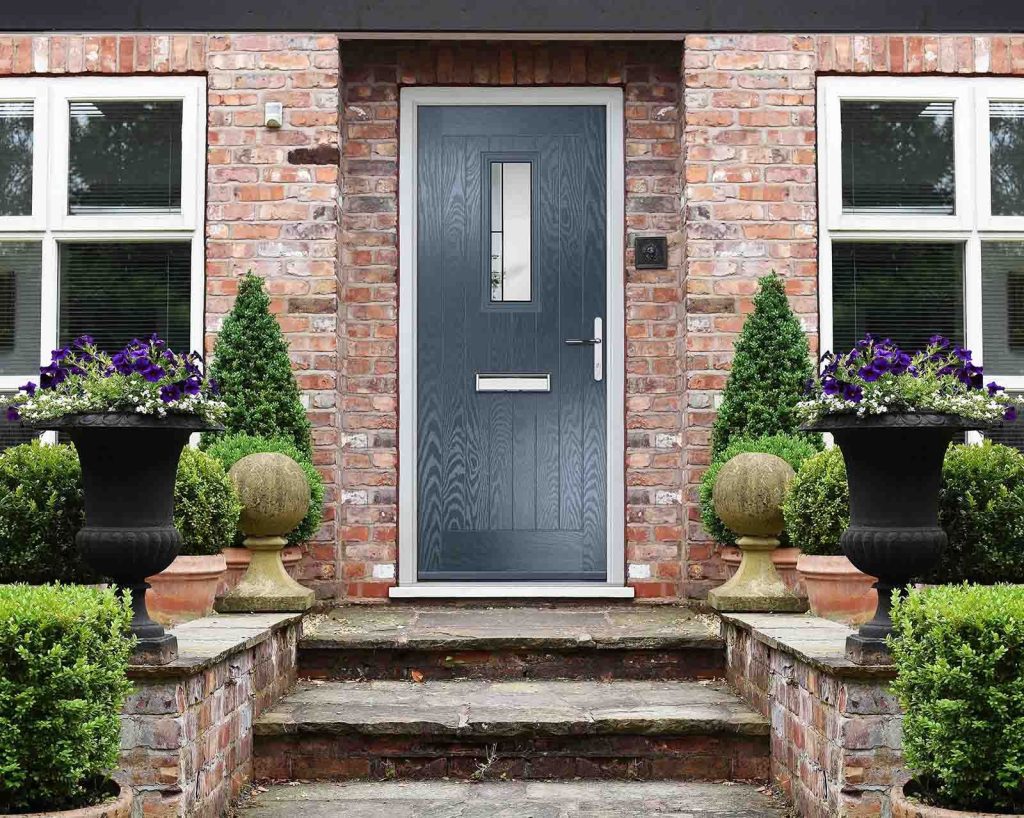
Security
Security features are vital for peace of mind. Both door types offer significant improvements over older wooden doors, but there are differences in their approach.
Composite door security
The combination of robust materials creates inherently strong doors that resist forced entry attempts. Our composite doors feature advanced multipoint locking systems, with options for TS007 high security cylinders and TS008 letterplates.
Especially if you choose a solid core option, alongside the GRP outer skin, you’re promised excellent resistance to impacts, whilst the reinforced central board add extra security. All doors meet PAS 24 security standards in line with Approved Document Q.
uPVC door security
Modern uPVC doors are significantly more secure than their reputation suggests. Our doors come with multipoint locking systems and can be fitted with high-security cylinders. The multi-chambered profile construction provides good resistance to impacts.
However, the hollow chamber design means they’re not quite as robust against sustained attack attempts compared to solid core alternatives.
Verdict: Composite doors provide superior security due to inherently stronger materials.
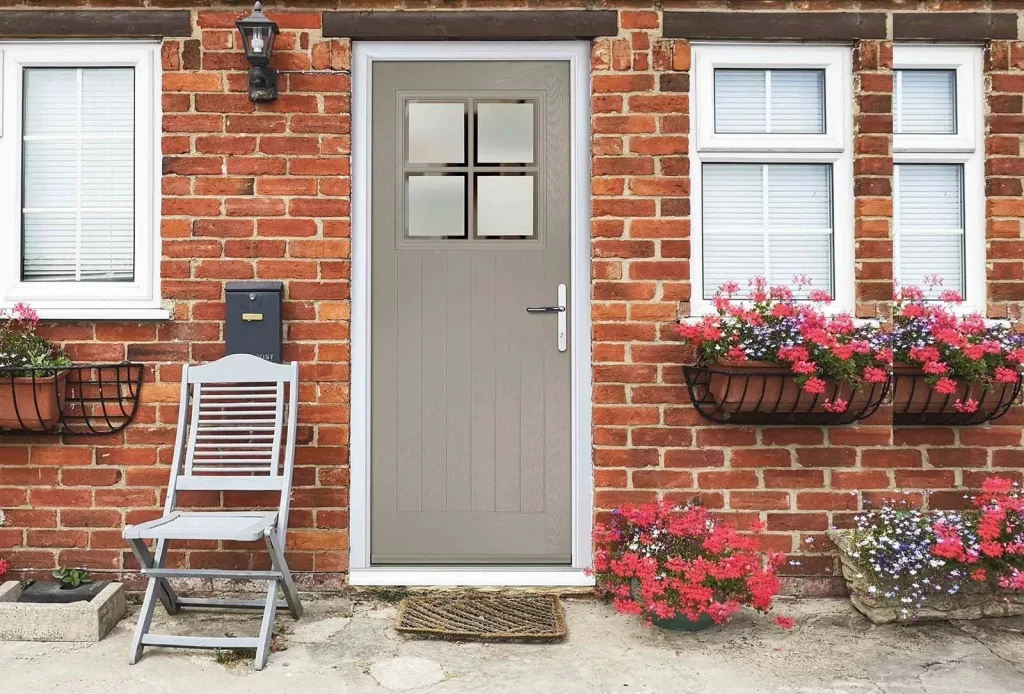
Maintenance
Low maintenance appeal attracts many homeowners who want an attractive entrance without ongoing upkeep.
Composite door maintenance
The GRP outer coating resists fading, cracking and warping. Simply wipe clean with soapy water occasionally. The water-resistant composites prevent moisture absorption that could cause problems over time.
Quality composite doors maintain their appearance for years without repainting or significant maintenance interventions.
uPVC door maintenance
uPVC profiles are virtually maintenance-free. They won’t rot, warp or require repainting. Simply clean with warm soapy water to maintain their appearance.
Modern uPVC formulations resist discolouration and degradation from UV exposure much better than earlier versions from the late 1990s.
Verdict: It’s essentially a tie – both offer excellent low maintenance properties.
Cost
Affordability often determines door choice, especially for homeowners on tight budgets.
Composite door costs
Composite doors represent a significant investment due to their complex manufacturing process and premium materials. Expect to pay considerably more than uPVC alternatives, though the long-term benefits may justify the expense.
uPVC door costs
As the cheaper option, uPVC doors offer excellent value for money. Lower manufacturing costs and simpler construction make them accessible for most budgets, delivering good performance without the premium price tag.
Verdict: uPVC doors win clearly on affordability and represent excellent value for money.
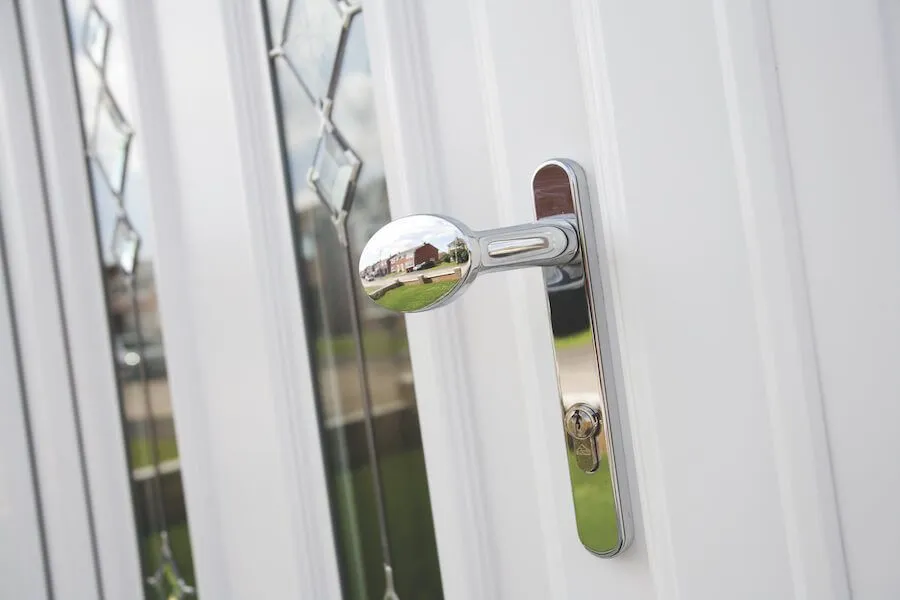
Aesthetics
Aesthetic appeal matters since your front door creates first impressions for visitors.
Composite door appearance
The authentic woodgrain finish and solid construction create convincing timber door aesthetics. Our range offers over 300 door styles with bespoke colour options and decorative glazing choices.
The GRP coating provides depth and texture that closely mimics natural wood, whilst the solid construction gives doors appropriate weight and feel.
uPVC door appearance
Modern uPVC doors have improved dramatically since the 1980s. Our range includes authentic woodgrain effects and contemporary colours. The versatility of design options means there’s a style for most properties.
However, the lighter weight and plastic construction can sometimes feel less premium than composite alternatives.
Verdict: Composite doors have the edge due to more convincing timber aesthetics, though both offer attractive options.
Lifespan
Longevity matters for long-term value and peace of mind.
Composite door lifespan
Quality composite doors typically last 30-35 years with minimal maintenance. The combination of materials resists warping, cracking and fading even under extreme weather conditions.
The robust construction and weather-resistant properties mean these doors maintain their performance and appearance throughout their lifespan.
uPVC door lifespan
Modern uPVC doors typically last 20-25 years. While durable, the plastic construction can eventually show signs of weathering and may require replacement sooner than composite alternatives.
Verdict: Composite doors offer superior longevity, making them better long-term investments.
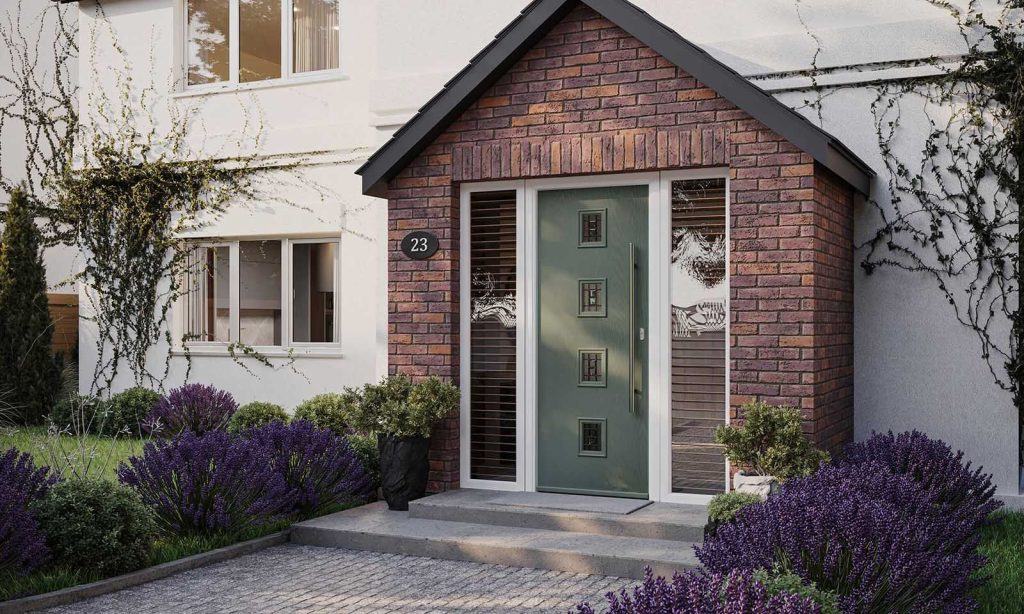
Choose composite doors if…
You prioritise thermal efficiency, security and longevity over initial cost. Composite doors suit homeowners planning to stay long-term who want maximum performance and authentic timber aesthetics. They’re particularly suitable for period properties where appearance matters.
Choose uPVC doors if…
Budget is your primary concern and you want good performance without premium pricing. uPVC doors are perfect for first-time buyers, rental properties or anyone wanting reliable, low-maintenance doors without significant investment.
Composite doors from Doncaster Trade Windows
We supply composite doors from trusted manufacturers DoorCo and Distinction Doors, offering over 300 styles with extensive colour and glazing options. Our range includes traditional Signature styles, contemporary designs and innovative nxt-gen options with added thermal performance.
All composite doors come with 10-year frame guarantees and professional installation across South Yorkshire.
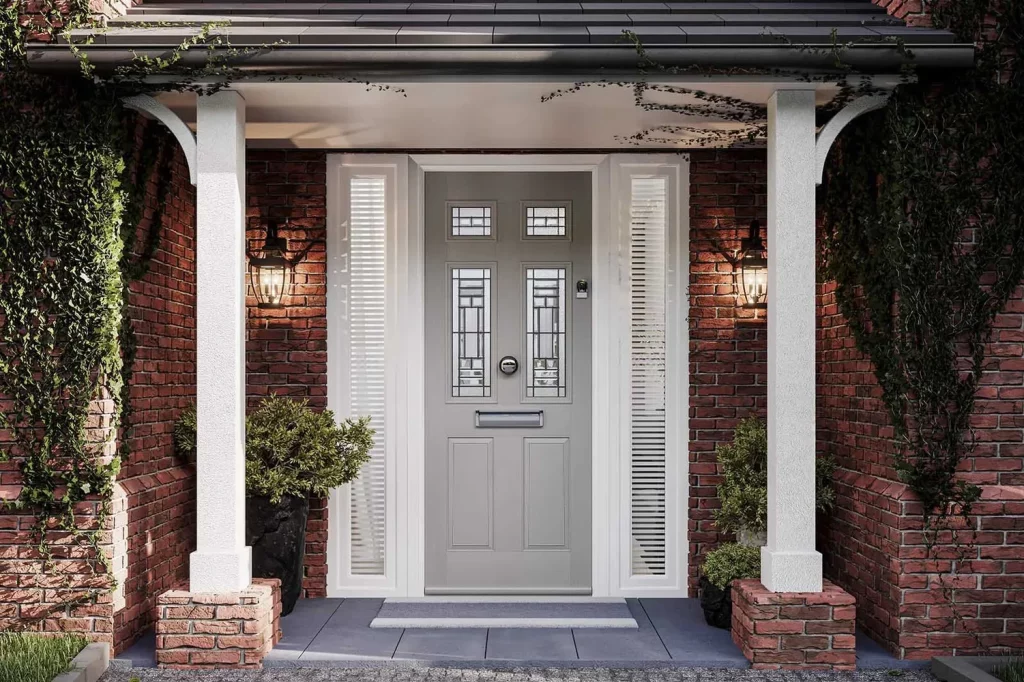
uPVC doors from Doncaster Trade Windows
Our comprehensive uPVC door range includes entrance doors, French doors, sliding patio doors and bifold designs – all manufactured in-house at our Doncaster facility using premium profiles.
We offer quick 2-week turnaround times for trade customers and 2-4 week lead times for homeowner installations, with free delivery within 20 miles of Doncaster.
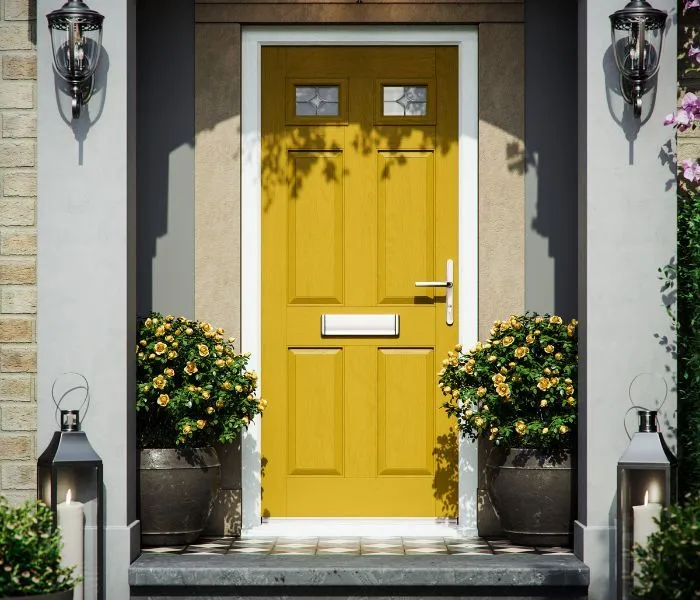
Frequently asked questions
Q. Which door type offers better value for money in the long run?
Ans. While composite doors cost more initially, their superior lifespan and energy efficiency can provide better long-term value. However, uPVC doors offer excellent short to medium-term value for budget-conscious homeowners.
Q. Do both new door types work well in extreme weather conditions?
Ans. Yes, both handle UK weather effectively. Composite doors have slight advantages due to their water-resistant construction, whilst uPVC doors cope well with temperature fluctuations without warping.
Q. Can I get authentic wood appearances with both options?
Ans. Both offer woodgrain effects, though composite doors provide more convincing timber aesthetics due to their textured GRP coating and solid construction feel.
Who are Doncaster Trade Windows?
We’re a family-owned business serving Doncaster and South Yorkshire since 2013, specialising in windows, doors and conservatories. We manufacture uPVC products in-house whilst sourcing composite doors and specialist systems from industry-leading suppliers. Our no-pressure approach means honest advice and fair pricing for both trade installers and homeowners.
We provide supply-only services with free local delivery for trade customers, plus professional installation for homeowners throughout our 20-mile service area.
Contact us today on 01302 891426 or email doncastertradewindows@live.co.uk for honest advice and competitive quotes on your door project.